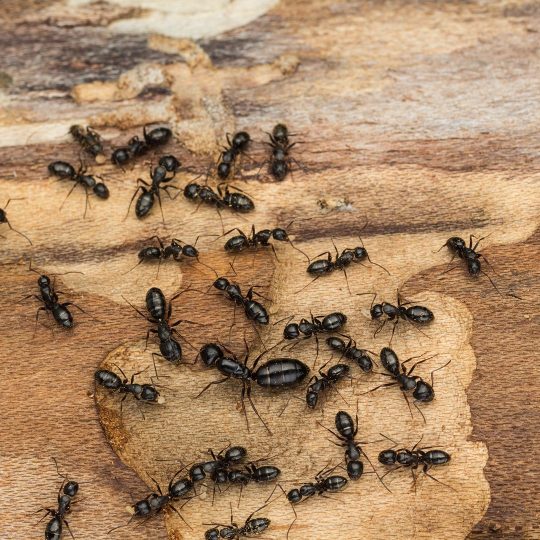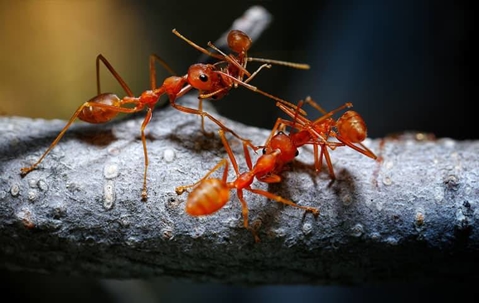Environmental Influence of Pest Control: Harmonizing Efficiency With Sustainability
The ecological influence of parasite control is a crucial concern that calls for a fragile balance in between attaining effectiveness in taking care of pests and ensuring sustainability of our environments. As we make every effort to protect our plants, homes, and wellness from the hazards presented by pests, the techniques we use can unintentionally harm the setting. From using dangerous chemicals that seep right into our soil and water to the unintended repercussions on non-target species, the consequences of traditional insect control practices are far-reaching. There are emerging methods that offer hope for an extra lasting technique to pest administration. These solutions not only purpose to address the immediate pest problems however additionally think about the lasting wellness of our world.
Unsafe Chemicals in Parasite Control
The utilization of dangerous chemicals in bug control postures considerable ecological and health and wellness risks that require cautious factor to consider and mitigation strategies. Insecticides, herbicides, and chemicals are typically used to eliminate parasites, but their extensive application can bring about unexpected effects. These chemicals can infect dirt, water sources, and the air, affecting not only the targeted pests however also useful insects, wildlife, and human beings.

To address these threats, incorporated pest management (IPM) methods are being promoted as a much more lasting option. IPM involves a combination of methods such as organic control, environment control, and the targeted usage of chemicals as a last resource (ant control hendersonville nc). By embracing an all natural method to pest control, we can lessen the environmental and health impacts connected with hazardous chemicals while efficiently handling pest populaces
Effect On Non-Target Types
Considering the unexpected effects of parasite control approaches, the influence on non-target types is a vital aspect that calls for comprehensive assessment. While parasite control actions intend to target details bugs, various other organisms in the environment may be unintentionally impacted. Non-target species, consisting of valuable pests, birds, mammals, and also plants, can endure direct or indirect injury from pesticide applications or organic control techniques.
Chemicals can have sub-lethal or deadly effects on non-target varieties. For example, pesticides created to combat a specific insect pest may damage pollinators like bees or all-natural killers such as ladybugs. Additionally, chemical deposits can collect in the environment, influencing non-target microorganisms with time. Likewise, biological control agents, if not species-specific, can pose risks to unplanned targets, interfering with the ecological balance.
To alleviate the effect on non-target varieties, incorporated pest management (IPM) techniques that emphasize an all natural technique to pest control are suggested. These techniques focus on making use of ecologically pleasant methods, lessening injury to advantageous organisms while efficiently managing pest populaces. Performing comprehensive danger analyses and keeping track of the results of bug control initiatives are important action in guarding non-target species and promoting overall environment health and wellness.
Dirt and Water Contamination
Unintentional ecological consequences of bug control techniques extend beyond affecting non-target types, with substantial ramifications for dirt and water contamination - termite control services. Chemicals, herbicides, and chemical plant foods made use of in parasite control can leach right into the dirt and infect groundwater, presenting a danger to both earthbound and aquatic ecosystems.
Water contamination is another critical issue linked with pest control methods. To minimize dirt and water contamination from insect control activities, incorporated insect administration approaches that focus on sustainability and minimize chemical inputs are critical.
Air Pollution From Chemical Use
Exposure to air-borne chemicals throughout agricultural applications presents a considerable concern for air pollution control measures. In addition, pesticide drift, where pesticides are lugged by the wind to unintended locations, can lead to the contamination of close-by environments and water bodies.

Strategies for Sustainable Parasite Control
In the world of farming practices, executing lasting insect control approaches is vital for preserving environmental equilibrium and protecting plant yields. Sustainable bug control emphasizes the use of eco-friendly approaches to take care of insect populaces efficiently while minimizing harm to non-target organisms and ecological communities. Integrated Pest Monitoring (IPM) is a commonly taken on strategy that incorporates organic, social, physical, and chemical control approaches to accomplish long-lasting pest administration remedies.
One trick method in sustainable pest control is advertising biodiversity within agroecosystems. By improving all-natural enemies of pests, such as parasitoids and killers, farmers can minimize the requirement for synthetic chemicals. Crop turning and diversity are likewise effective techniques to interrupt pest life process and produce much less desirable problems for pests to prosper. Furthermore, making use of pest-resistant crop ranges and using methods like catch chopping can help in reducing bug pressure without depending heavily on chemical interventions. Ultimately, by incorporating these lasting bug control techniques, farmers can accomplish a balance in between pest management efficiency and ecological stewardship.
Conclusion
Finally, the ecological influence of bug control methods should be carefully considered to stabilize performance with sustainability. Harmful chemicals utilized in parasite control can lead to soil and water contamination, air pollution, and harm non-target species - ant control services. It is important to implement lasting parasite control methods to lessen these negative effects on the environment and promote a much healthier ecosystem for future generations
By adopting a holistic method to pest control, we can minimize the ecological and health and wellness influences linked with dangerous chemicals while efficiently handling pest populations.

To reduce the air contamination created by chemical use, it is vital to take on integrated pest administration techniques that focus on the usage of non-chemical pest control methods, such as plant turning, natural predators, and resistant crop varieties. Lasting insect control emphasizes the use of ecologically friendly approaches to take care of parasite populations successfully while lessening harm to non-target microorganisms and environments. Integrated Bug Monitoring (IPM) is an extensively embraced approach that integrates biological, cultural, physical, and chemical control techniques to accomplish long-term insect administration options.